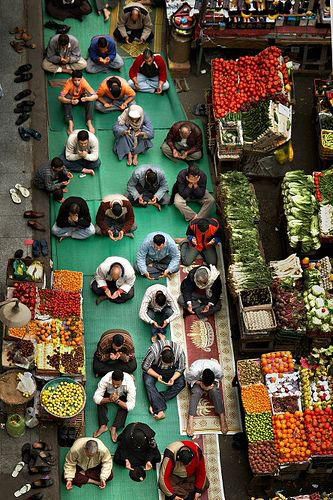5 questions non-Muslims are embarrassed to ask during Ramadan
)
Over one billion Muslims in Uganda and around the world are observing Ramadan since March. So there's a chance that someone you know is celebrating, fasting, or engaging in communal service, among other activities.
Here are some answers to some basic questions surrounding Ramadan.
DON'T MISS: Five common scams during Ramadan
1. What is Ramadan really about?
It is a time of spiritual discipline followed by a three-day feast known as Eid al-Fitr when Muslims share joy and celebration with loved ones for completing the sacred month in spiritual discipline.
DID YOU KNOW: Five Muslims who are not permitted to observe Ramathan
But behind this sacred month and activity is a rich history that is connected to Prophet Muhammed's words, "When the month of Ramadan starts, the gates of heaven are opened and the gates of hell are closed and the devils are chained."
It is also believed to be the time that God revealed the first verses of the Quran to Mohammed on "The Night of Power".
2. How does fasting work?

Fasting is one of the five duties of every Muslim each year. It should not be confused with intermittent fasting or any other fasting practised by other religions. In Islam, it serves spiritual and social purposes such as; a reminder of your frailty and dependence on God for sustenance, walking in the shoes of the poor and needy in order to cultivate compassion and reducing distractions so as to focus more on the relationship with God.
Swallowing medicine (even without water), chewing gum, and smoking are also prohibited during the fast from dawn to dusk.
During this time, Muslims are also supposed to refrain from feeding negative emotions and thoughts and socially destructive activities. Some Muslims take it upon themselves to avoid social culture to focus on their faith.
3. What is life like in a day during Ramadan?
Although there are a number of prohibitions, both individual and of Islam, Muslims are not exempt from work, school, or any other normal and routine duties during Ramadan. In some countries, working hours may be reduced while other businesses close entirely, but other than that, normal life goes on unperturbed.
Upon waking before dawn, Muslims eat a well-balanced diet high in protein and water to last them the entire day and then have prayers.
When the sun sets, they break the fast with a snack meal known as "iftar" after which they attend evening prayers.m There is a special prayer only recited during the holy month. Then they gather around a larger meal later in the evening with loved ones and fellow believers.
The purpose of the small meal to break the fast is because the Muslim prayers involve a lot of movement which might go wrong on a full stomach after not eating for a whole day.
"Despite the hardship of fasting for a whole month, most Muslims (myself included) actually look forward to Ramadan and are a little sad when it’s over. There’s just something really special about knowing that tens of millions of your fellow Muslims around the world are experiencing the same hunger pangs, dry mouth, and dizzy spells that you are and that we’re all in it together," says Jennifer Williams from Vox.
4. Do you lose weight during Ramadan?
One review of scientific studies on the effects of Ramadan fasting on the body found that there are small changes in weight which fade after Ramadan as the body returns to its state before Ramadan.
Body weight loss during Ramadan is not a reliable way to lose weight and should not be seen this way. Only specific lifestyle changes and consistent healthy actions can lead to weight loss.
However, the reverse is also true. Some people may gain weight due to changes in their metabolism.
5. What can I do to be respectful of my Muslim friends during Ramadan?
In some Muslim countries, eating and drinking in public during the day in Ramadan is a crime even if you are not Muslim.
Although you shouldn't have to change your behaviour to accommodate them, some things are simply courtesy. Eating your lovely meals away from them. Not offering them eats because they are human and may forget that they are fasting.
Did we miss any important questions you may have? Let us know!
)
)
)
)
)
)